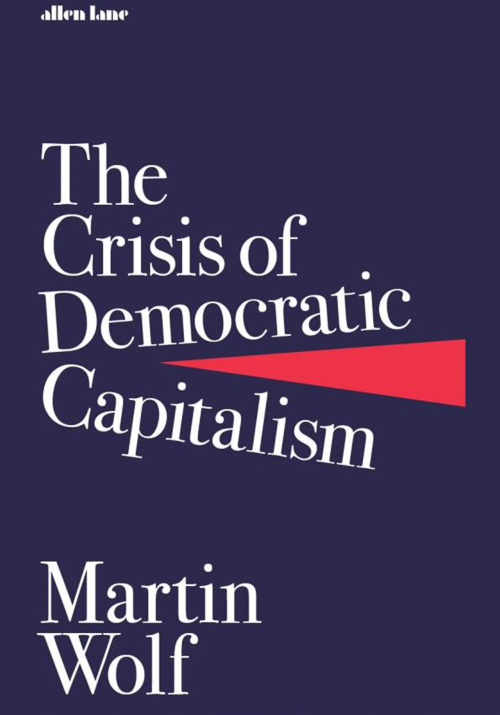Martin Wolf of the Financial Times has a new book, The Crisis of Democratic Capitalism, in which he dismisses UBI very superficially.
Geoff Crocker has posted a review in which he argues that Wolf’s “summary dismissal of proposals such as basic income, which he calls a ‘delusion’ (p278)” lacks depth. Crocker writes: “Stating that a UK basic income of £11,200 per adult would cost £580 billion or about 25% of GDP, and is therefore unaffordable and that ‘that is all there is to say about this idea’ (p283) is superficial and trivial. He equally dismisses his colleague Martin Sandbu’s more refined proposal. In static analysis, writers like Malcolm Torry and Stewart Lansley have shown that basic income schemes can be revenue neutral and achieve progressive redistribution. The further dynamic case that automation reduces labour income per unit of output, requiring increased non-labour income is equally ignored. Recent macroeconomic modelling by Cambridge Econometrics has demonstrated the stability of a basic income proposal funded by debt-free sovereign money.”
Read the full review here.



I have rarely encountered such a profound critique. Impressive Mr. Crocker how you make your point. Very impressive indeed.
I for myself consider a truly unconditional basic income, funded at best from ecological sources such as use of goods and services (revenue), is a first big step towards a society in wich we define personal success differently.
Generally IMHO we will (have to) move from comparing our financial achievements to endorsing our wellbeing, relationships, purpose, knowledge or spiritual connection which are all non material indicators of success in judging “do i live a good life?”
cheers from Austria
Thanks Helmo that’s very kind of you. There are more resources for UBI advocacy on the web site http://www.ubi.org Best wishes for your work in Austria
Geoff
The major problem with so-called benefits is that they are means- tested – the rugi s pulled from under you as soon as you hav any other income. I am amazed that even Martin Wolf fails to recognize means testing as a high tax rate at low incomes. https://www.clivelord.co.uk
An ECONOMY needs to have MONEY moving through it.
Jobs no longer put enough money into the hands of those who would SPEND it. Without a substitute, the economy will collapse. No matter how UBI would be financed, the money would be coming OUT of the economy and going RIGHT BACK IN. This would be a stable economy.
The discourse around basic income has several levels. The lowest level is characterised by the question: “Where should the money come from?” This is the level of the design of the “procrustean bed” and the tool-box of making guests long or short to fit. Establishing a basic income within the status quo is not factually appropriate because the status quo precludes it. There can only be political solutions that are bad compromises.
The meta-level is the social contract. Why do people live in societies? What written or unwritten rules have they given themselves / were they given?
I am not aware of any conditions in a social contract that allow society to let a member perish in its midst. In this respect, basic income is unconditional.
Material prosperity and free time for relationships and personal development is the result of cooperation in division of labour. This implies that the results are distributed appropriately, both per capita and according to a contribution to it. Money is the liquidating agent of the division of labour. As such, the form of a dividend would be appropriate.
It also includes that every member of society has time free from worrying about their own livelihood so that they can devote themselves to caring for others, whether in an activity with a price tag (market economy) or without (care economy).
At this level, it is possible to talk about a UBI in a completely different way, because at the same time it is visible that it is primarily a question of the prosperity – material and temporal – of society and not about (still necessary) charity for individuals.
I would like to see more discourse at this level for myself and for basic income. If a common picture and a common will about the art of living together emerges here, solutions at the deeper levels will become easier.
For an affordable UBI review https://grb.net
Poverty and insecurity in the present world is immensely expensive in myriad ways, far more “expensive” than UBI. I will not try to expand on that, unless anyone should contact me with the offer of writing a book on the subject!